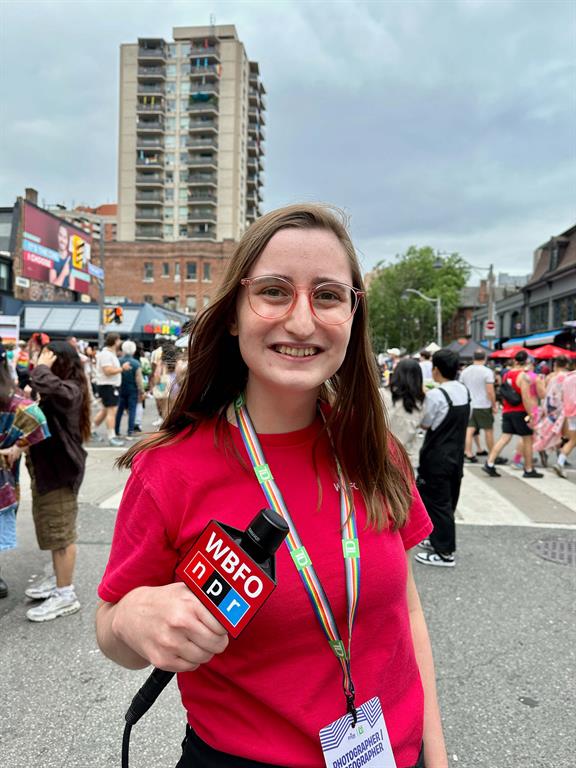Tribute Award for Advocacy

By Patchen Barss
As the Disability Reporter and host of Disabilities Beat for the NPR and PBS affiliate Buffalo Toronto Public Media, investigative journalist Emyle Watkins gives voice to some of the most underserved community members of Southern Ontario and Western New York: people living with disabilities, chronic health, and mental health conditions.
Watkins’ journalism is rooted in their own lived experience as a disabled and neurodivergent person. They draw on both the commonalities and differences in the stories of the people they report on.
“I've gotten to sit across from people who have lived vastly different lives than I have lived, experienced things I will never fully understand what it's like to experience, but we have always found something in common,” they say. “I think the disability community exemplifies a courageous vulnerability and compassion in the ways we communicate with each other that would change lives if only more people could experience it. I am so grateful to be part of and to serve this community.”
Whether they’re covering politics, employment, housing, or education, Watkins works to ensure people with disabilities have the chance to speak for themselves. When Watkins documents barriers blind New Yorkers face in voting and accessing public transportation, or ways to celebrate New Years with kids whose disabilities make them sensitive to overstimulation, they centre the humanity and individuality of the people they’re reporting on.
Their groundbreaking work sets a more inclusive standard for media reporting, influences public policy discussions, and often brings to light stories that no other media organization is covering.
Watkins actively contributes to building the global field of disability reporting. They authored the Global Investigative Journalism Network’s Guide to Investigating Disability Issues. They also serve on the Accessibility and Membership Committees of the non-profit organization Investigative Reporters and Editors and are a member of the Association of Health Care Journalists. Watkins provides free and low-cost workshops to colleges, journalists, and organizations interested in improving coverage of people with disabilities and promoting representation in newsrooms.
“Working with the disability community has shown me journalism has a long way to go in accurately representing everyone. No one person or idea of a person can represent all of us,” they say. “I believe the best journalism shows that nuance and diversity. I think more news outlets need to support their journalists in getting the full story, rather than the easier or more ‘clickable’ one. Our lives can't be simplified.”